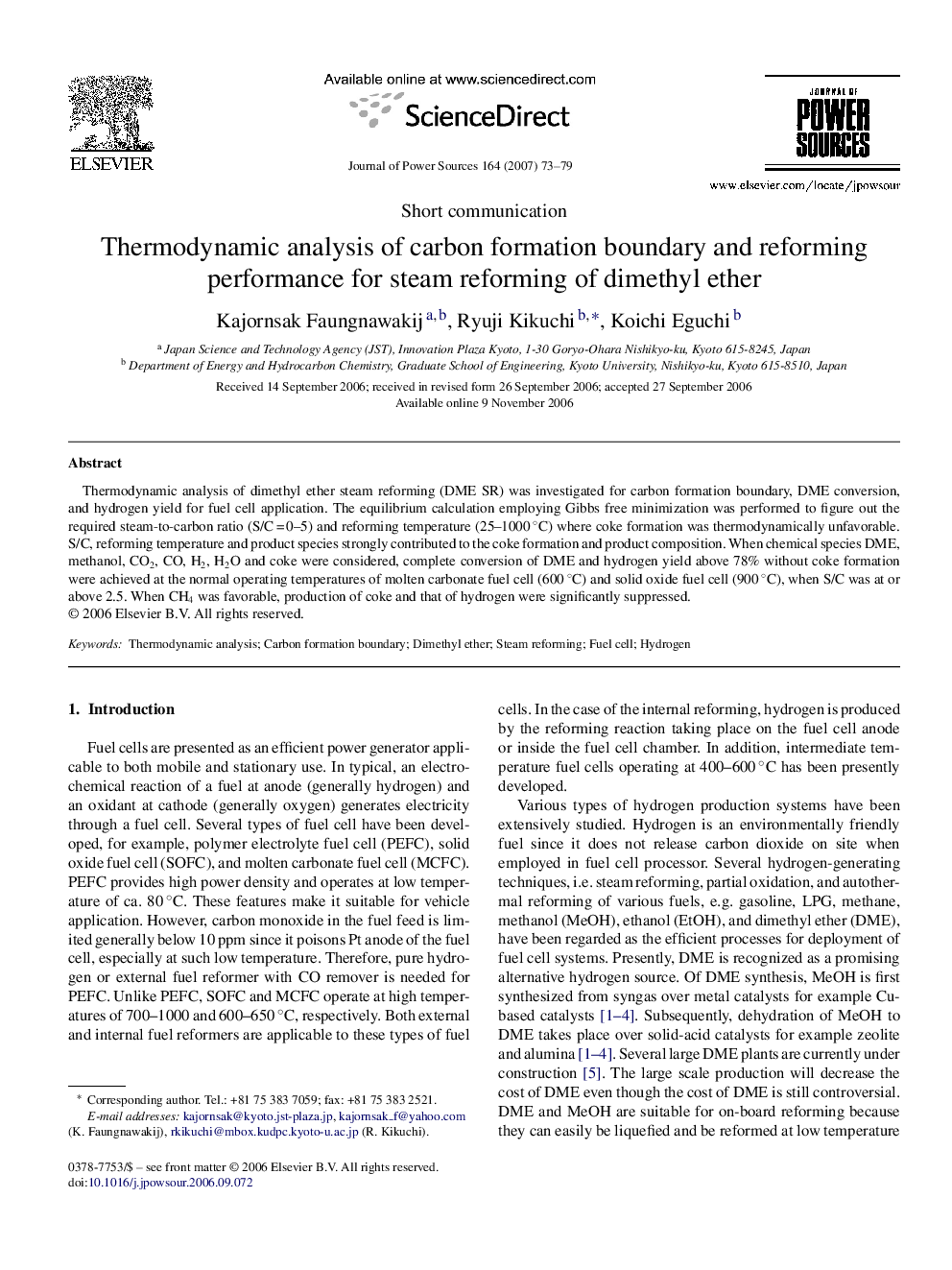| Article ID | Journal | Published Year | Pages | File Type |
|---|---|---|---|---|
| 1291694 | Journal of Power Sources | 2007 | 7 Pages |
Thermodynamic analysis of dimethyl ether steam reforming (DME SR) was investigated for carbon formation boundary, DME conversion, and hydrogen yield for fuel cell application. The equilibrium calculation employing Gibbs free minimization was performed to figure out the required steam-to-carbon ratio (S/C = 0–5) and reforming temperature (25–1000 °C) where coke formation was thermodynamically unfavorable. S/C, reforming temperature and product species strongly contributed to the coke formation and product composition. When chemical species DME, methanol, CO2, CO, H2, H2O and coke were considered, complete conversion of DME and hydrogen yield above 78% without coke formation were achieved at the normal operating temperatures of molten carbonate fuel cell (600 °C) and solid oxide fuel cell (900 °C), when S/C was at or above 2.5. When CH4 was favorable, production of coke and that of hydrogen were significantly suppressed.
